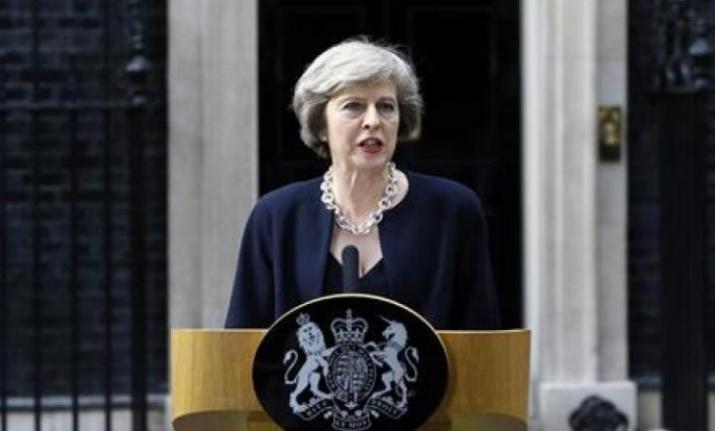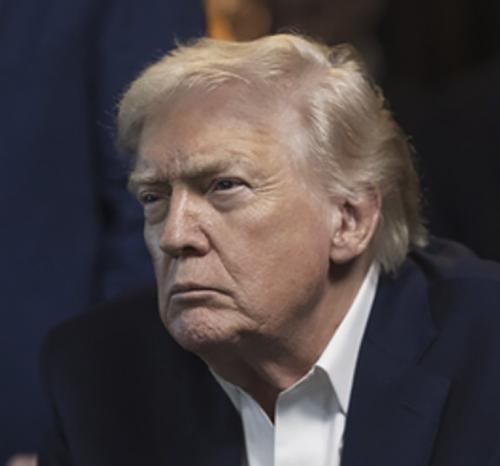By Aditi Khanna London, Mar 13 (PTI) A day after British Prime Minister Theresa May's Brexit divorce bill was rejected in a bruising 149-vote defeat, MPs will return to the House of Commons on Wednesday to vote on whether to prevent the UK's exit from the EU by March 29 without any deal in place. The latest motion to try and avert a chaotic no-deal Brexit, which would see Britain crash out of the 28-member economic bloc without any transition phase, follows a rejection of May's withdrawal agreement 391 to 242 despite a final push by her to try and convince hard-Brexiteers that the concessions she had won to the controversial Irish backstop clause would not see the UK tied to the EU rules indefinitely. Speaking moments after yet another Parliament defeat over Brexit on Tuesday night, May said that MPs would have to decide whether they want to delay Brexit, hold another referendum, or whether they "want to leave with a deal but not this deal". She made her own opposition to a no-deal Brexit very clear, warning of potential damage to the Union that leaving without a deal could do . The motion to be voted on Wednesday reads: "This House declines to approve leaving the European Union without a withdrawal agreement and a framework on the future relationship on 29 March." In an unusual move aimed at curbing further dissent between the various warring cliques within her own Conservative Party, May announced that her party MPs will be given a free vote on the motion and not be whipped to vote in any specific way by the government. It reflects the deep divisions that linger within her party over the issue. While some hard-Brexiteers such as former Cabinet minister Boris Johnson are in favor of a no-deal exit, there is unlikely to be a majority for it in Parliament. The Opposition Labour Party has been demanding no-deal be taken off the table for months now. If no-deal is rejected, MPs will then vote on Thursday on delaying Brexit by extending Article 50 the legal mechanism that takes the UK out of the EU. This would have to be ratified by the EU and the length of extension will become the next focus on both sides. However, how the EU will react to an extension request remains unclear at this stage, given that it is preparing for its own EU elections towards the end of May. The EU side has expressed dismay at the agreement being rejected by Britain for a second time since the last vote in January and said it would need "a credible justification" before agreeing to any extension. Unless agreed otherwise, Britain leaving the EU by March 29 remains the default Brexit option by law. With that in mind, the UK government on Wednesday also unveiled plans for trade across borders under such a scenario. As a temporary measure, most imports into the UK would not attract a tariff in the event of a no-deal Brexit, the UK's Department for International Trade (DIT) announced. Under a temporary scheme, 87 percent of imports by value would be eligible for zero-tariff access up from 80 per cent at present. Tariffs would be maintained to protect some industries, including agriculture. The government also announced it will not introduce any new checks or controls, or require customs declarations for any goods, moving from across the border from Ireland to Northern Ireland if the UK leaves the EU without a deal. The decision to drop all checks to avoid friction at the UK's land border with the EU will be temporary while longer term solutions are negotiated, the DIT said. The move comes amid a hectic week in politics at Westminster, when MPs have a flurry of crucial decisions before them that would determine Britain's future with the EU. Although she managed to convince about 40 Tory MPs to change their mind since her historic 230-vote defeat on the Brexit withdrawal agreement in January, May failed to get it through the Commons finish line. The Irish backstop, an insurance policy designed to maintain an open border on the island of Ireland between UK territory Northern Ireland and EU member-state the Republic of Ireland proved insurmountable in the end, despite some "legally binding" changes May hoped would be enough for the second vote on the agreement this week. The March-end deadline kicked in when the UK triggered Article 50 of the Lisbon Treaty following a referendum in favor of Brexit by nearly 52 percent to 48 percent in June 2016. Unless MPs are able to rule out leaving by March 29 without any exit strategy or agreed terms, the UK is set to crash out of the bloc leading to deep uncertainties for businesses relying on cross-border arrangements.
UK set for another major Brexit vote to rule out no-deal exit
- by Rinku
- March 13, 2019 2 minutes

theresa-may










